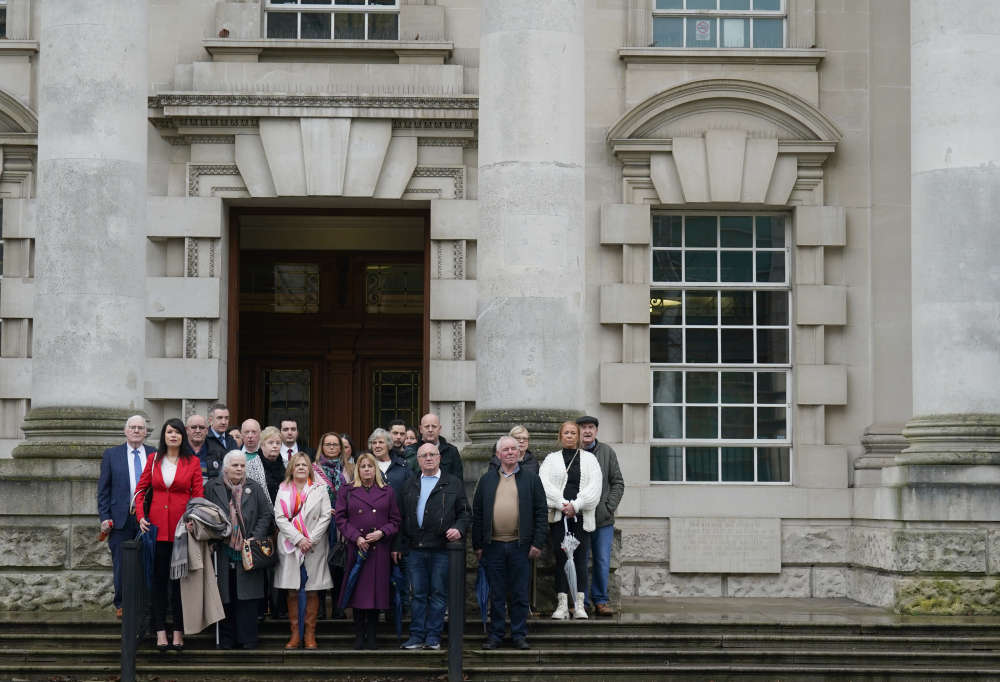
By Jonathan McCambridge (PA)
Provisions for conditional immunity from prosecution for Troubles offences in the Government’s Legacy Act are not compatible with human rights legislation, the High Court has ruled.
Delivering a judgment at Belfast High Court, Mr Justice Adrian Colton said there is no evidence the immunity provision will in any way contribute to reconciliation in Northern Ireland.
However, the judge also said a new body set up to probe Troubles killings could carry out human rights-compliant investigations.
The Legacy Act received royal assent in September despite widespread opposition from political parties, victims’ organisations in Northern Ireland and the Irish Government.
Aspects of the laws include a limited form of immunity from prosecution for Troubles-related offences for those who co-operate with the new Independent Commission for Reconciliation and Information Recovery (ICRIR).
The new Act will also halt future civil cases and legacy inquests.
A number of Troubles victims had taken the legal action challenging the human rights compliance of the Government’s Act.
Mr Justice Colton told the court: “I am satisfied that the immunity from prosecution provisions under Section 19 of the Act are in breach of the lead applicant’s rights pursuant to Article 2 of the ECHR (European Convention on Human Rights).
“I am also satisfied they are in breach of Article 3 of the ECHR.”
He added: “There is no evidence that the granting of immunity under the Act will in any way contribute to reconciliation in Northern Ireland; indeed the evidence is to the contrary.”
Regarding the ICRIR, Mr Justice Colton said: “I fully understand the opposition to the new scheme and the reasons for it.
“That said, I cannot at this remove say the system established under the Act cannot provide an Article 2 and 3 compliant investigation.
“It has wide powers and wide range of discretion to carry out its reviews.
“Should it fall short of its obligations on Articles 2 and 3, I have no doubt they will be subject to the scrutiny of the court.”
He added: “The court is satisfied that the provisions of the Act leave sufficient scope for ICRIR to conduct an effective investigation as required under Articles 2 and 3 of ECHR.”
The judge is continuing to deliver his judgment.

Grainne Teggart, Amnesty International UK's Northern Ireland Deputy Director with victims families and supporters outside Belfast High Court ahead of its decision in a landmark legal challenge to the UK government's Troubles Act brought by several victims of the Northern Ireland conflict. Martina Dillon, John McEvoy and Lynda McManus have challenged the human rights compliance of the Act including its denial of inquests, lack of adequate investigations and ban on civil claims.


 O’Neill: ‘I’m sorry for attending Bobby Storey funeral during pandemic’
O’Neill: ‘I’m sorry for attending Bobby Storey funeral during pandemic’
 Stormont collapse ‘meant opportunities to prepare health service were lost’
Stormont collapse ‘meant opportunities to prepare health service were lost’
 Man killed in crash involving two vans
Man killed in crash involving two vans
 Visit of Wuhan tourists to Larne ‘dispelled notion Covid could be contained’
Visit of Wuhan tourists to Larne ‘dispelled notion Covid could be contained’
 Investigation into ‘missing’ notes from key Executive meeting
Investigation into ‘missing’ notes from key Executive meeting